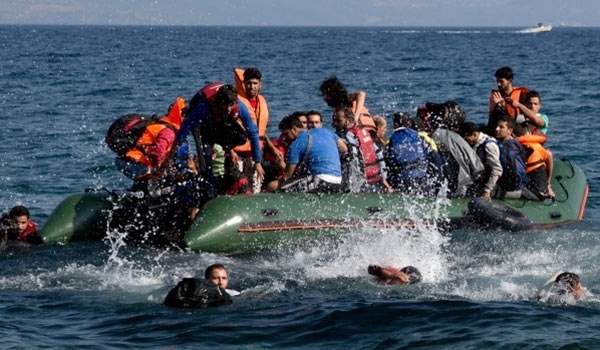
RNA - The International Organization for Migration says tens of thousands of refugees, many from Syria and Iraq, have been stranded for months along the borders of Greece and Macedonia. Fleeing war and grim prospects at home, they have been trying to get North, through the Balkans and on to Germany and beyond - but a closed border has left them stranded in the open.
As far as the refugee crisis is concerned, much still depends on whether the United States and allies are willing to swallow their pride and end the regime-change war on Syria. On this evidence, the best way to prevent further refugee flows into Europe is to address the roots of the problem in Syria - assuming it is not already too late.
Here, Turkey is refusing new refugees even if they are in an awful situation on the other side of the border. Western countries have also adopted a similar policy, as they are no longer willing to alleviate the resultant humanitarian crisis. Such considerations at least bring the idea of implementing a safe haven to protect civilians in Northern and Southern Syria back to the forefront of the debate. Washington calls it “no-fly zone”! A desperate plan by the US and Israel to hide terrorists among the poor refugees to shield them against the Syrian and Russians' devastating air assaults. Israel first introduced the plan to the Americans several months ago to establish refugee townships in the Syrian Golan Heights and make Damascus give up security and law enforcement in these regions to the so-called refugee residents.
More than five years ago, when the Syrian conflict first erupted, not many refugees had any intention to make their way to Europe. On the contrary, the majority were quite content living in the same cities, towns and villages in Syria and Iraq that, in most cases, their ancestors had occupied for centuries before them.
The only reason they now find themselves clamouring at the Greek-Macedonian border for permission to travel into the EU’s heartland is that the intensity and complexity of the Syrian conflict has made it impossible for them to remain – even in the no-fly zones Washington is so desperate to establish in order to continue the war. If there were any reasonable prospect that the fighting might end soon, many would prefer to return to their homes and rebuild their lives rather than embark on a new life in Europe.
Indeed, the main reason sprawling refugee camps have taken root in countries adjacent to the Syrian border, such as Jordan, Lebanon and Turkey, is that most of the occupants hoped they were moving there as a temporary measure until the violence subsided.
But, there are two reasons why so many have now abandoned the Mideast camps in favour of making the hazardous journey to Europe: Firstly, the decision by the United States and NATO allies to establish no-fly zones and escalate the war has led many to conclude that the Syrian conflict will last for decades.
Another factor has been the woefully inadequate funding of UN aid programs to support refugees based in the region. With the exception of some, the majority of Western countries have fallen well short on the aid front. The same criticism applies to oil-rich Arab states, which have done nothing to resolve a crisis which, after all, is taking place on their own doorstep. On the contrary, they keep supporting terror proxies in the hope that one day they would install a puppet in Damascus.
All that could change, though, if the regime changers decide to come to their senses, end the dirty war on Syria, and establish a political framework for national reconciliation. To this end, Western leaders should also acknowledge at the UN that President Bashar Assad’s future is no longer an issue for them and it is for the Syrians to decide.
This could lay the foundations for a more wide-ranging political settlement that might result in millions of displaced Syrians being allowed to return to their homes, thereby, enabling them to embark on the painful process of rebuilding their country.
847/940